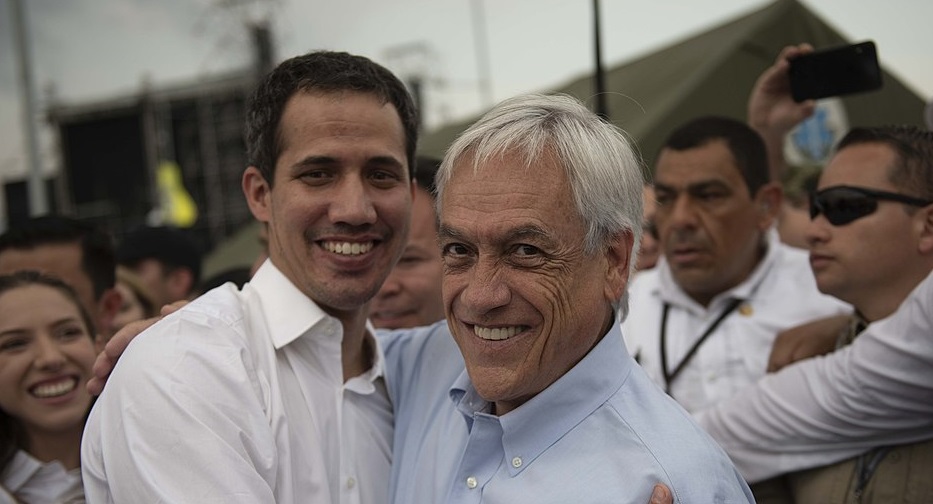Guadio seeks to galvanize domestic and international support
March 12, 2019 | Expert Insights

Opposition leader, Juan Guaido remains free following his drive to secure support from Venezuela’s neighbours. Guaido increases pressure on Nicholas Maduro by calling for a civic strike among public sector workers.
Background
The Bolivarian Republic of Venezuela is situated in northwest South America and possesses the world’s largest provable oil deposits. Several political crises throughout the 20thCentury, including attempted coups, impeachments and corruption scandals, has resulted in a largely unstable Venezuela. Following the death of the incumbent, Nicholas Maduro assumed premiership in 2013.
Despite its formidable natural resources, the majority of Venezuelans live in poverty. The problem has been exacerbated by a rise in inflation and a shortage of basic goods since Maduro assumed office. Beginning in 2014, protests against the government are commonplace, especially in relation to Venezuela’s economic circumstance.
Increasing in frequency from 2017, protests have called for new elections to remove Maduro’s United Socialist Party (PSUV) from power. Despite this, Maduro’s party remains as entrenched as ever, consolidated by the installation of a new constituent assembly filled with Maduro’s supporters and armed with the power to re-write the constitution.
The dire economic condition of the nation through hyperinflation, the lack of basic amenities including critical medical supplies, a drop in global oil prices, frequent human rights abuses and rampant corruption has yet to displace Maduro’s administration. At least 2.7 million people have left Venezuela since 2015.
On January 23, 2019, US President Donald Trump recognized opposition leader Juan Guaido as the ‘legitimate’ President of Venezuela. Guaido had declared himself interim president earlier that month. Eleven European nations followed the American example. The US has historically been at odds with Venezuela’s typically socialist governments, including Maduro’s.
Analysis
On March 4, 2019, Guaido returned home to a hero’s welcome after defying a travel ban that forbade him from leaving Venezuela. Seeking to galvanize support for his claim, Guadio had embarked on a 10-day tour of Venezuela’s South American allies and neighbours, including partners such as Brazil, Argentina, Paraguay and Ecuador. Guadio had also visited a Colombian border crossing that had garnered international attention by Venezuela’s refusal to permit aid into the country, especially that from the US. Maduro had promised to crush the “crazed minority” that sought to remove him from power.
Remaining free despite the threat of arrest by Maduro’s government for defying the travel ban, Guaido told reporters on March 5, “They’re drowning in contradictions, they don’t know how to respond to Venezuela’s people. They thought the pressure had reached its zenith, but it’s only just beginning.”
Guaido had met public sector union leaders on March 5, a national holiday, following which he stated, “Public sector workers have lost practically all their rights, we have no other option but to call for a civic strike.” These leaders included union representatives from the oil industry, basic services, public banks and local governments. Earlier, Maduro called upon his supporters to launch counter protests to those planned by Guaido, keeping with a Maduro tactic to tackle dissenting demonstrations.
Political coups have occurred periodically in Venezuelan history, especially following a populist uprising. In the 1950s, a civilian-military movement overthrew a powerful military dictatorship, indicating the potential for such events to occur again under Guaido’s oversight. Guaido’s populist appeal and lobbying of public sector groups create the milieu for another potent civilian-military partnership.
Assessment
Our assessment is that the military remains the crucial factor in the current Venezuelan crisis. The more Guaido seeks to secure support from the widest cross-section of Venezuelan society, the more likely the military is to support his claims. Maduro is likely to keep tight control over what is his most potent calling card; the military.
Image Courtesy: Gobierno de Chile [CC BY 3.0 cl (https://creativecommons.org/licenses/by/3.0/cl/deed.en)]








Comments